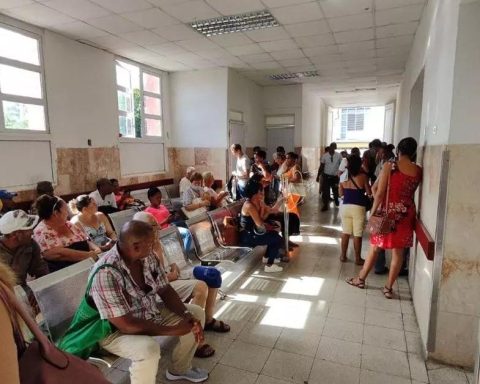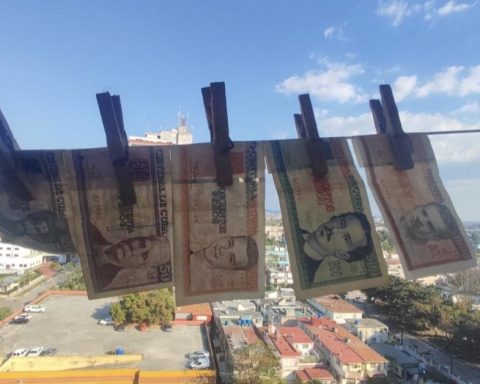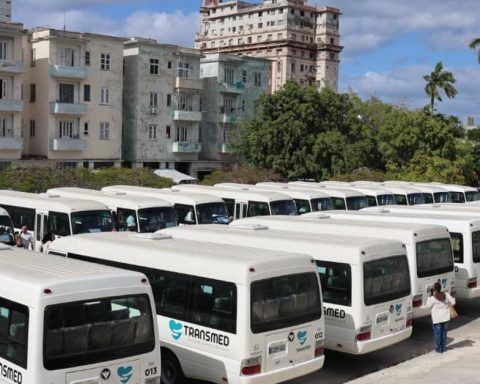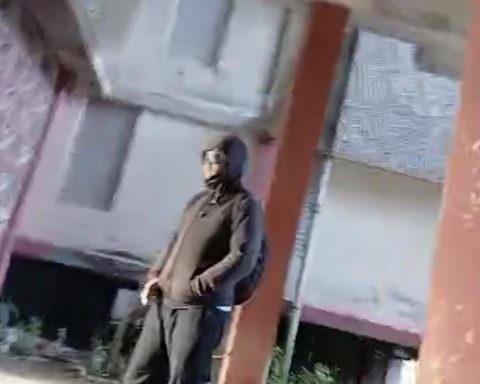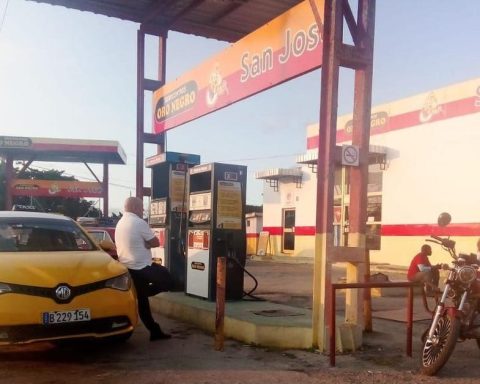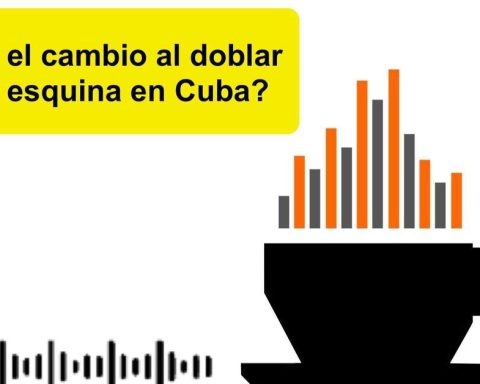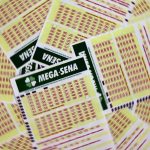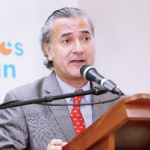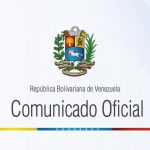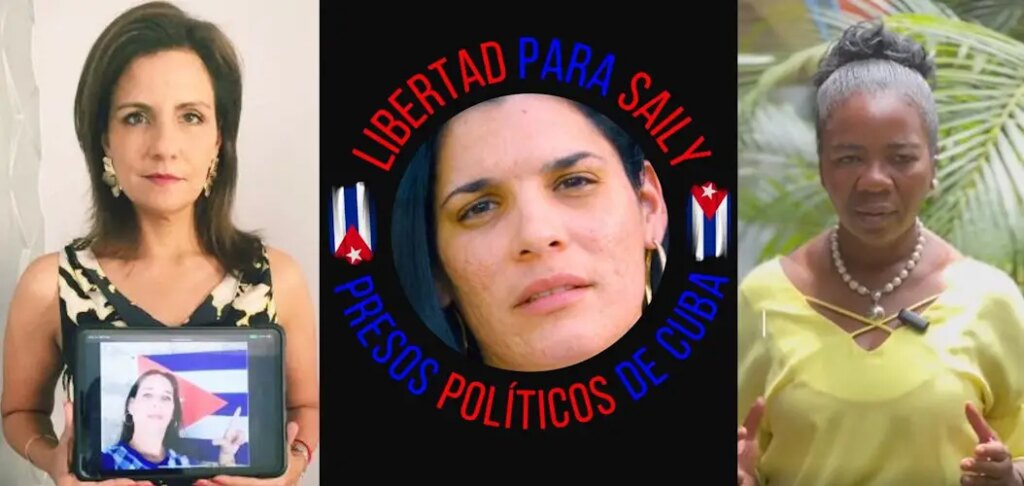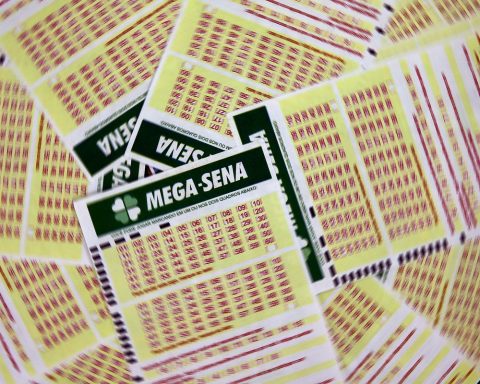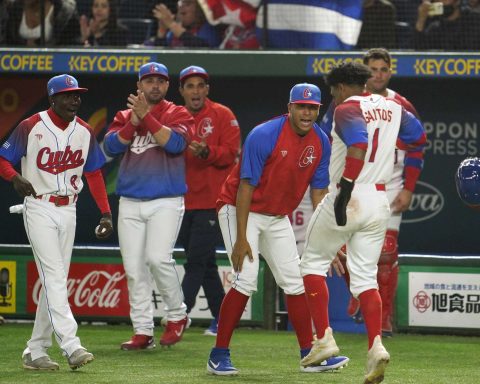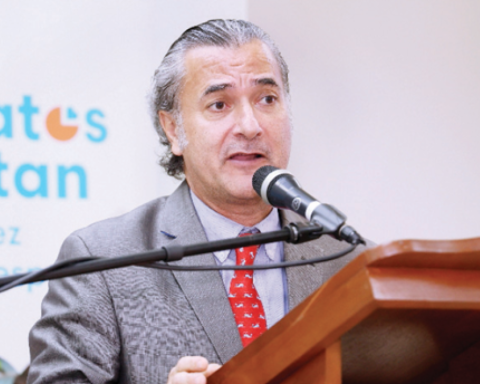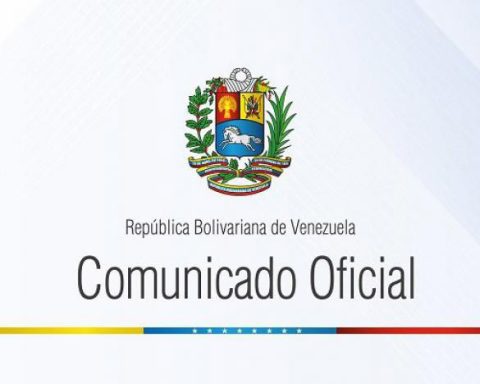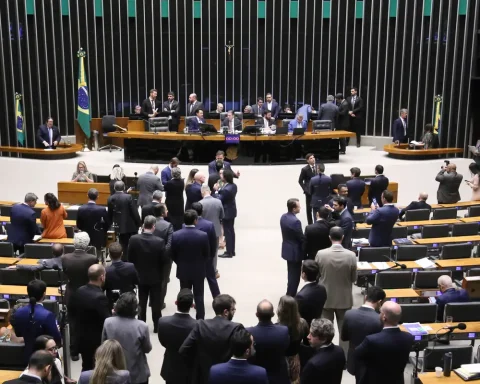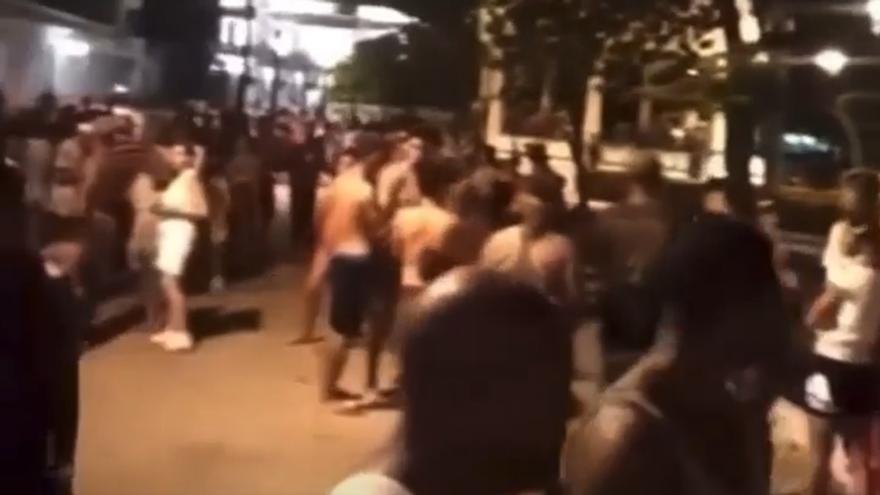
The trial that is taking place since Monday in the Popular Provincial Court of Cienfuegos against nine protesters who took to the streets in the Covadonga neighborhood of the municipality of Aguada de Pasajeros to protest the blackouts, in july of last yearis expected to be relentless with the accused.
“They do not let the witnesses give explanations, they quickly cut them off and tell them to limit themselves to answering the question. If the question is yes or no, they cannot give even half an argument as to why,” the family member of one of the accused, present at the trial.
In the oral hearing, Roche Valentín Ibáñez González (29 years old), Elisnaide Martínez Cañete (37), Dagoberto Escobar Sosa (62), Jorge Armando Castañeda Terrero (36), Elier Alfonso Fonseca ( whose age was not made public), Pedro Caride Santana (28) and Marco González Castro (18). To these two accusations is added that of sabotage in the cases of Gianny Betancourt Leiva (22 years old) and Seify Carmona Méndez (48).
All of them, except Elier Alfonso Fonseca and Pedro Caride Santana, who posted bail of 10,000 pesos, and the youngest, Marcos González Castro, who awaited trial in freedom, were transferred to the court from the Cienfuegos Provincial Prison, where they are .
“They are people who are there going through a lot of work, they have a lot of psychological damage,” says the same relative, who assures that the prisoners go hungry in jail. In this regard, he gives the example of Dagoberto Escobar Sosa, who is not only the oldest in the group but also has diabetes, and has as a “responsible diet” mango and boiled fish “with scales, guts and everything.”
“They are people who are there going through a lot of work, they have a lot of psychological damage”
The account of the facts prepared by the prosecution and exposed in the accusation file, to which this newspaper has had access, gives them -as already happened in the trials of the protesters of July 11, 2021– by tested. The prose, full of adjectives and presumptions, makes the “crimes” clear.
“Posted in common agreement and taking advantage of the darkness of the night that placed them in an advantageous position, they decided to get hold of cauldrons, cans and other suitable instruments to scandalize and started a protest, where to the beat of the touches of these metals they incited residents of the neighborhood to join the demonstration, vociferating phrases of demands such as ‘turn on the P current…’, thus disturbing citizen tranquility, and exacerbating the inhabitants of said town with their actions. those who requested to join the march to achieve massiveness in their protest”, reads the legal text, without a full stop and censoring the word ‘pinga’.
Roche Valentín Ibáñez González and Elisnaide Martínez Cañete are accused of having shouted “Díaz-Canel singao” (this word is also censored in the file) and “Patria y Vida”. To Dagoberto Escobar Sosa, for playing “from his mobile phone songs of a counterrevolutionary nature authored by Osmani García and Los Aldeanos” (that is, the musical theme Diazka).
After these “evil acts”, some of the defendants, always according to the prosecution file, tore down a propaganda poster with the slogan “Victoria de Girón”, and others broke the window of the Cimex Arco Iris store. The text says revealingly about her: “whose sales are made in freely convertible currency, with the aim of raising foreign currency for the country’s economy, and to be able to acquire in the international market the products of greatest need for the population.”
“They are prepared to confuse witnesses, to ask them questions that could confuse one with the other, pretending to want to get to the root of the problem”
These facts were denied by the defendants, says the relative who attended the trial, who lashes out at the “cruelty” with which the six members of the court, all military, behaved, “with a face like bad people, what can I tell you?” .
“They are prepared to confuse witnesses, to ask them questions that could confuse one with the other, pretending to want to get to the root of the problem,” he explains. “Then the witnesses get nervous, and even the prisoners themselves got nervous. They all said that they did participate in the demonstration, but what they yelled was to turn on the current, although you know, with bad words and that.”
Many, the source continues, “were forced to say that they were not against the revolutionary process, that they were not against the president, that they were revolutionaries.”
The relatives present in the room were searched upon entering – “they search you completely, they run their hands up and down, they touch everything” – and forced to leave all their belongings in a locker, including their glasses.
Once inside, he complains, “they don’t let the family get close to the prisoners, they can’t even look back.” At one point, in the morning session, the president of the room expelled the wife of one of the defendants for making a slight gesture, and snapped at those present: “The trial can be done with the defendants, the lawyers And the prosecutors, you are not needed here”.
According to this source, “the relatives have hope, because they really did not do anything so serious or bad, or such a great crime that they were judged in that way, for so many years, as if they had killed a human being.”
“They forced them to say that they were not against the revolutionary process, that they were not against the president, that they were revolutionaries”
On Monday the defense witnesses testified and for this Tuesday the prosecution witnesses were scheduled to render their version. “They are all these State Security people who accused them,” the relative details, “but according to information that other people gave them, because they did not see anything.”
All the streets surrounding the court were closed to the passage, local residents report, and in Covadonga, the neighborhood where the defendants are from, an operation with a multitude of agents has been deployed.
This cast was not the only one that took to the streets in Cuba between July and August of last year. The origin of these sporadic demonstrations was the energy crisis that made the Government take the measure of establishing power cuts throughout the country, some for up to 14 hours. One of the most crowded occurred precisely in the city of Cienfuegos, on the night of August 5, 2022. Hundreds of Cubans stood in the Martí park, in front of the provincial government headquarters – the only illuminated building – demanding an end to the blackouts. Coincidentally, the demonstration took place at the same time that the fatal fire began at the Supertanker Base in Matanzas, that cost 17 lives and it would become the worst industrial disaster in the history of the Island.
________________________
Collaborate with our work:
The team of 14ymedio He is committed to doing serious journalism that reflects the reality of deep Cuba. Thank you for accompanying us on this long road. We invite you to continue supporting us, but this time becoming a member of our newspaper. Together we can continue transforming journalism in Cuba.
